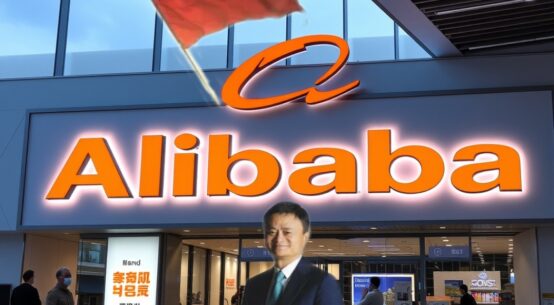In recent years, the European Union (EU) has become a global leader in regulating the tech industry, taking a firm stance against the uncompetitive business practices of some of the world’s largest technology companies.
This shift has been driven by mounting concerns over the immense power held by tech giants like Google, Amazon, Apple, and Meta, whose dominance in the digital landscape is seen as stifling competition and harming consumers. The EU’s regulatory actions have escalated in the past few years, as these companies face increasingly stringent scrutiny for violating antitrust laws and engaging in anti-competitive behaviors. With the introduction of landmark laws aimed at curbing monopolistic practices, the EU is reshaping the regulatory landscape for big tech.
The Rise of Big Tech and Uncompetitive Practices
Over the past two decades, tech giants have grown at an unprecedented rate, largely through acquisitions, market control, and data monopolization. As their market power ballooned, so too did concerns about their anti-competitive behavior. Some common tactics employed by these companies include predatory pricing, the unfair use of proprietary data, and leveraging their dominance to push competitors out of the market. Many argue that such behavior ultimately harms consumers by reducing choices, inflating prices, and stifling innovation.
The EU has long been vocal about its concerns regarding the business practices of tech companies. In recent years, there have been numerous investigations and fines, such as those against Google for anti-competitive practices related to its search engine and Android operating system. However, it is the EU’s new suite of regulatory measures that is drawing the most attention, signaling a more aggressive stance on holding these companies accountable.
The Digital Markets Act (DMA) and the Digital Services Act (DSA)
Two landmark pieces of legislation—the Digital Markets Act (DMA) and the Digital Services Act (DSA)—mark the EU’s most direct challenge to the dominance of tech giants. These laws aim to address various aspects of the digital economy, with a primary focus on fostering fair competition, ensuring consumer protection, and improving transparency.
- Digital Markets Act (DMA): The DMA is designed to curb monopolistic practices by targeting “gatekeeper” companies—those that control access to large swaths of the digital economy, such as Google, Apple, and Amazon. Gatekeepers are defined as companies with significant market power that control access to essential services or platforms used by consumers and businesses alike. The law forces these companies to open their platforms to more competition, prevent self-preferencing (where companies give preferential treatment to their own services), and provide greater transparency in their algorithms and data usage. For example, the DMA prohibits gatekeepers from favoring their own services in search rankings or forcing consumers to use their payment systems exclusively. It also limits their ability to collect and use data from third-party businesses in a way that would give them an unfair competitive advantage. By imposing fines and requiring companies to change their business practices, the DMA is the EU’s most aggressive attempt yet to dismantle anti-competitive practices in the tech sector. Non-compliance can result in hefty penalties, including fines of up to 10% of a company’s global turnover.
- Digital Services Act (DSA): While the DMA focuses on competition, the DSA is geared toward enhancing transparency and accountability in how tech companies manage user content. It establishes strict rules on moderating content and preventing harmful practices such as the spread of misinformation, hate speech, and illegal activities on digital platforms. The DSA requires companies to be more transparent about their content moderation policies, provide clearer reporting on how algorithms function, and offer users more control over their data. Moreover, the act places greater responsibility on platforms to address harmful content, such as online hate speech, and holds them accountable for their role in the dissemination of illegal content. The DSA also targets the problem of “dark patterns,” or deceptive user interfaces designed to trick people into agreeing to terms or making purchases they might not otherwise make.
Why Is the EU Cracking Down?
The European Union has long been at the forefront of advocating for consumer protection and fair competition. There are several key reasons driving its ongoing push to regulate tech giants and their business practices:
- Consumer Protection: The EU has consistently stressed the need to protect consumers from harmful practices such as data exploitation, privacy violations, and monopolistic behavior. As tech companies control vast amounts of data, there are growing concerns about privacy and the security of personal information. The EU’s stringent data protection laws, such as the General Data Protection Regulation (GDPR), have already set global standards for privacy. The DMA and DSA are seen as the next logical steps in protecting consumers from harmful tech practices.
- Leveling the Playing Field: Small and medium-sized enterprises (SMEs) are often at a disadvantage when competing against tech giants, who can dominate entire markets through their size, financial resources, and control over digital ecosystems. The EU’s regulatory measures aim to ensure that smaller businesses have a fair shot at competing, without being crushed by monopolistic practices. By promoting a level playing field, the EU hopes to foster more innovation and encourage diversity in the tech sector.
- Promoting Digital Sovereignty: The EU has expressed a desire to assert greater control over its digital landscape and reduce reliance on foreign tech giants. By introducing laws that regulate the business practices of these companies, the EU is hoping to enhance its digital sovereignty. This would allow European businesses and users to have greater control over the technologies that shape their lives, rather than being subject to the rules of non-European corporations.
- Global Influence: With the European Union leading the charge on regulating big tech, it is positioning itself as a global standard-bearer for digital regulation. The EU’s influence extends beyond its borders, and its laws often set a precedent for other nations to follow. The United States, for instance, is increasingly under pressure to adopt similar regulations in order to rein in the power of its own tech giants. The EU’s aggressive stance could inspire further legislative action worldwide.
Implications for Tech Giants and the Future of the Industry
The EU’s renewed focus on uncompetitive business practices and its crackdown on tech giants could have far-reaching consequences for both the companies involved and the tech industry as a whole.
- Operational Changes for Tech Companies: The DMA and DSA require significant changes in the way that tech giants operate. Companies will need to implement more transparent business practices, adjust their algorithms, and restructure their data policies. For example, Google may no longer be able to favor its own shopping services in search results, and Apple might be forced to allow third-party payment systems on its App Store. This could lead to operational disruptions and a shift in how tech platforms generate revenue.
- Increased Costs and Legal Challenges: Compliance with the DMA and DSA will require tech giants to invest in new systems, personnel, and technologies to meet the new regulatory requirements. In addition to these compliance costs, companies may also face additional legal challenges as regulators continue to scrutinize their practices. As fines for non-compliance can be substantial, companies will need to navigate a complex legal landscape to avoid costly penalties.
- Changes in Consumer Experience: The regulations could lead to a more competitive digital environment, which might benefit consumers by offering them more choices, improved privacy protections, and enhanced content moderation. The opening up of digital platforms could lead to new services and innovations from smaller competitors. However, the increased scrutiny on large companies may also result in fewer integrated services, as companies might be forced to relinquish certain control over their ecosystems.
Conclusion
The European Union’s ongoing efforts to crack down on the anti-competitive practices of tech giants represent a significant shift in how the digital economy will be regulated in the future. The DMA and DSA are bold steps toward creating a more competitive, transparent, and consumer-friendly digital landscape. While these measures will undoubtedly affect the way tech giants operate, they also set a critical precedent for global digital regulation.
As the EU continues to lead the charge in holding big tech accountable, the future of the industry may be shaped by the fine balance between innovation, competition, and consumer protection. For both consumers and businesses, the outcome of this regulatory revolution will be watched closely as the digital landscape evolves in the coming years.







